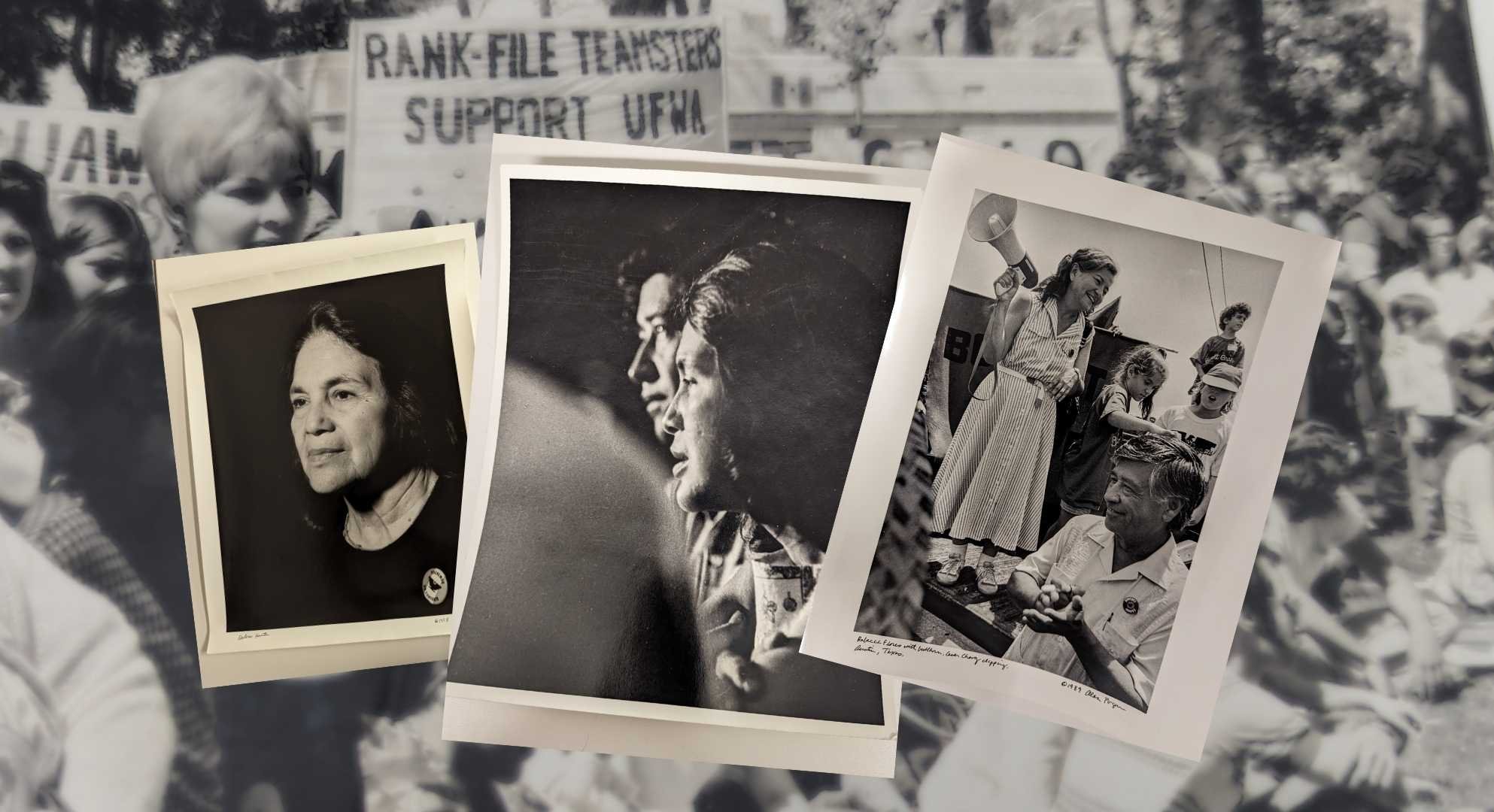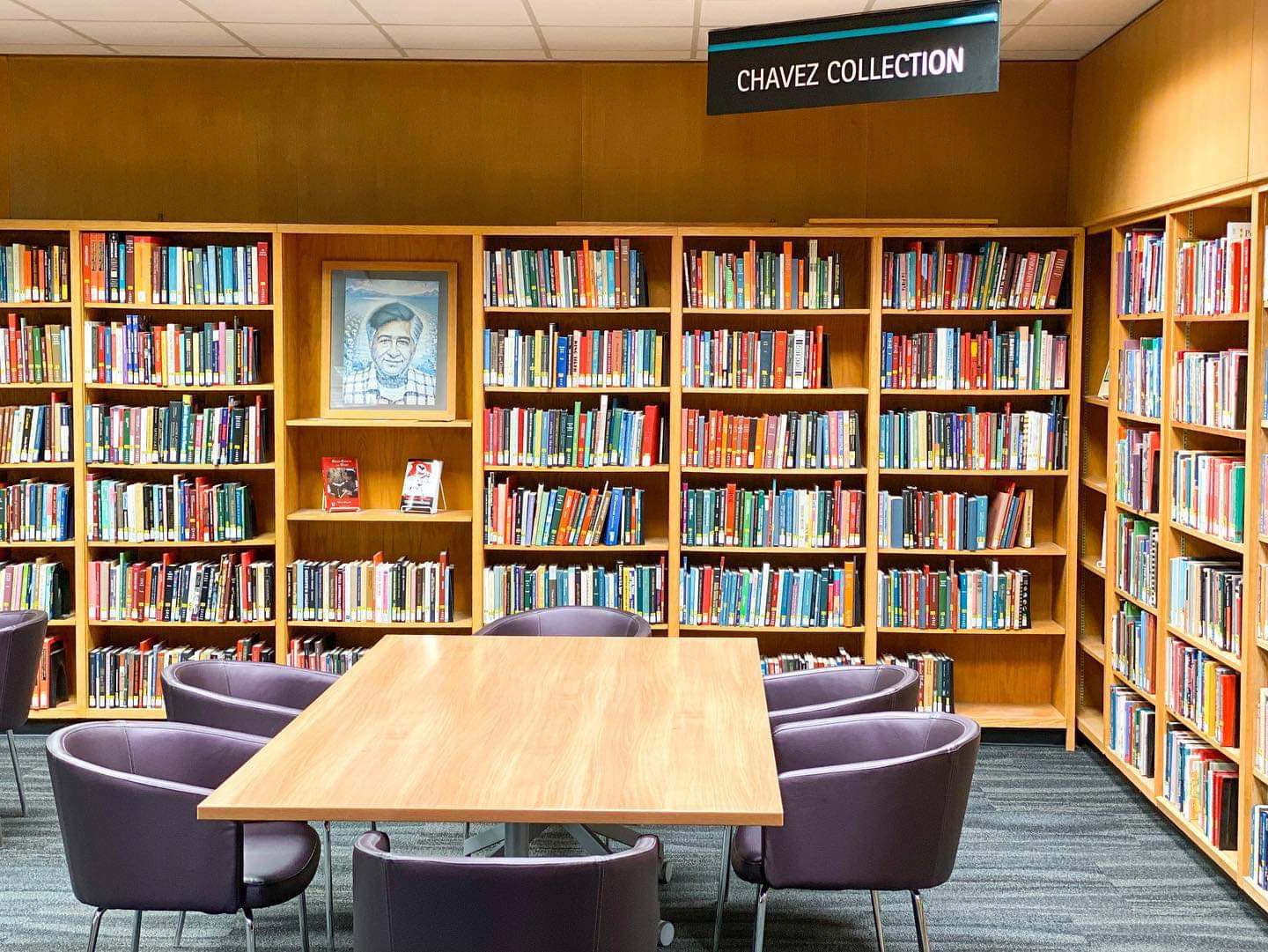Andrea Salazar McMillan is the Chicano and Latino Studies librarian in MSU Libraries and a core faculty member in the Chicano/Latino Studies program in the College of Social Science at Michigan State University. McMillan shares why it’s important to preserve and share the impact of Latinx activism during National Farmworker Awareness Week.
I joined the Stephen O. Murray and Keelung Hong Special Collections unit of MSU Libraries in 2019. My primary responsibilities include curating the César E. Chávez Collection, the Latino Collection and the José F. Treviño Chicanx/Latinx Activism Collection. In addition, as a core faculty member in Chicano/Latino Studies, I support the program and its scholars through my collection development activities, library instruction and outreach services.
The Chávez collection will be celebrating its 30th anniversary in 2024. The collection is a multidisciplinary collection housed on the first floor of the main library. Books within the collection focus on the lived experiences of Latinx communities in the United States. Subject areas that are more heavily emphasized include migrant farmworkers, labor unions and social justice causes — all representative of the movements César Chávez fought for throughout his life. The history of how the Chávez collection came to be has always amazed me. It was the result of the student organization Movimiento Estudiantil Chicano de Aztlán, or MEChA, demanding that the university establish a Chicano/Latino Studies program at MSU and support farmworkers and the United Farm Workers, or UFW, during the grape boycott that had been in effect since 1984.
While the university did not initially comply with the student group’s demands, it did vow to increase the number of courses focusing on Chicano/Latino history offered at MSU as well as establish the Chávez collection in honor of the civil rights activist.
In 1996, two years after the establishment of the Chávez collection, the university officially declared Chávez’s birthday, March 31st, “No Grapes Day” at MSU and allowed residence hall cafeterias to decide whether to serve grapes picked by nonunion workers. A year after that, the Chicano/Latino Studies, or CLS, program was implemented. If you open any book housed in the Chávez collection, you’ll find a red bookplate with the black UFW eagle inside the front cover symbolizing the collection’s connection to MEChA.
Before becoming the CLS librarian, I did not realize how closely tied the Chávez collection and the CLS program are in how they came to be established at MSU. We owe everything to Latinx student activism. Yet, despite all that’s been accomplished, there’s still a long way to go. My commitment to continuing to build the Chávez collection has everything to do with students: What support, resources and information do they need to succeed? And what can I do as a librarian to preserve their legacies here at MSU?
Currently, I am the co-chair of the planning committee for the César Chávez and Dolores Huerta Commemorative Celebration. This is a university-wide celebration coordinated through the Office for Institutional Diversity and Inclusion. The theme of this year’s celebration is “Recordando y Progresando Raices: Remembering and Progressing Our Roots” to honor and acknowledge the hard work migrant farmworkers do every day to feed America.
 Dolores Huerta and César Chávez archival photos featured in the MSU Libraries exhibit. Photos courtesy of MSU Libraries.
Dolores Huerta and César Chávez archival photos featured in the MSU Libraries exhibit. Photos courtesy of MSU Libraries.
The celebration will provide a space to have conversations in the community about the issues farmworkers continue to face today and what we can do to help advocate for better conditions. Being part of this committee has given me new opportunities to connect with Latinx communities throughout the state and provide different forms of support outside of the library. This program has also informed me of the work that colleagues, scholars and students are doing across campus and throughout Michigan.
The Chávez and Huerta commemorative celebration will take place on campus from March 25 to 31 in alignment with National Farmworker Awareness Week. On March 31, there will be a celebration luncheon with a keynote address from Connie Perez-Andreesen, national vice president of the UFW. The luncheon is open to all in the MSU community and to the public. You can register for the luncheon and see other campus events at inclusion.msu.edu.
If you visit the Main Library that week, you’ll find the Chávez collection exhibit case featuring artwork and other memorabilia honoring Dolores Huerta for Women’s History Month.

